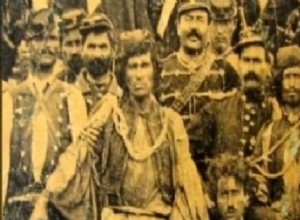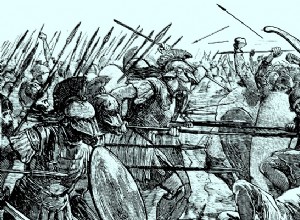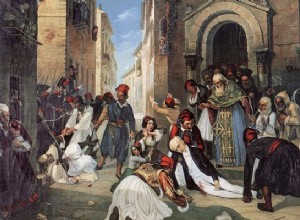Στις 30 Μαρτίου 1870 μια ομάδα ξένων εκδρομέων, ανάμεσά τους ο Βρετανός λόρδος Μάνκαστερ με τη σύζυγό του, οι γραμματείς της βρετανικής και της ιταλικής πρεσβείας και οι συνοδοί τους απήχθησαν από τη συμμορία των ληστών Αρβανιτάκιδων. Οι ληστές ζήτησαν λύτρα 25.000 στερλινών και αμνηστία για να α




